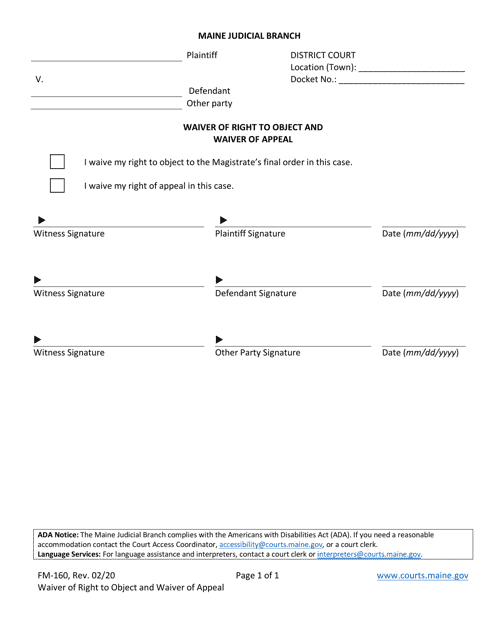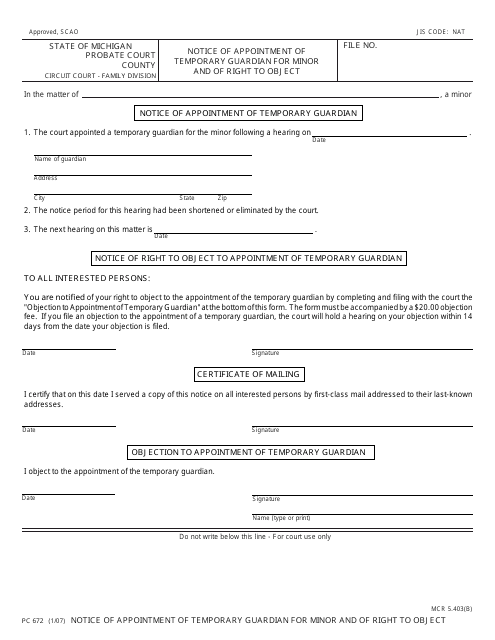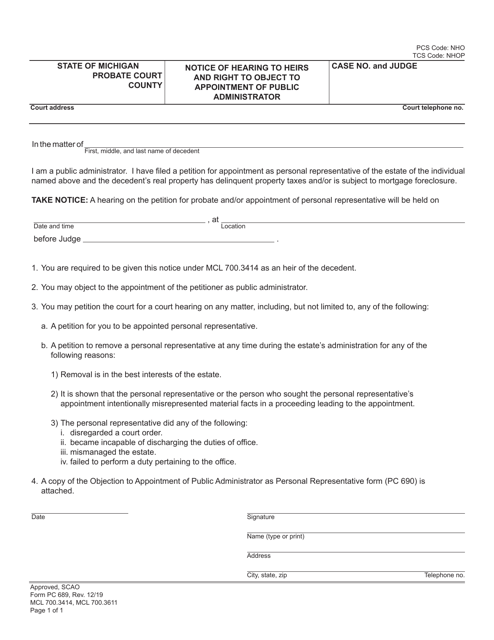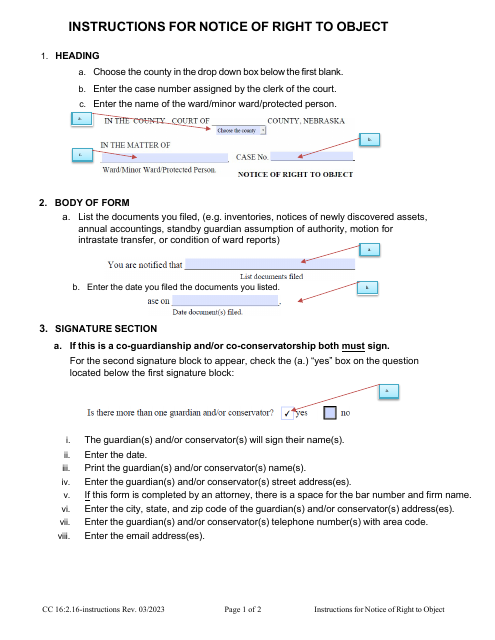Right to Object Templates
The Right to Object, also known as the Right to Object collection, is a series of legal documents that pertain to various legal proceedings in different jurisdictions. These documents provide individuals with the option to voice their opposition or disagreement to certain actions or decisions taken by authorities.
Within this comprehensive collection, you will find a range of documents that cover a variety of scenarios where individuals have the option to exercise their Right to Object. Whether it is a form to waive the right to object and appeal, such as the FM-160 Waiver of Right to Object and Waiver of Appeal in Maine, or a notice of appointment of a temporary guardian for a minor and the right to object, such as the PC672 Notice of Appointment of Temporary Guardian for Minor and of Right to Object in Michigan, these documents are essential in preserving individual rights and ensuring proper legal procedures.
Other documents in this collection include notices of hearings to heirs and the right to object to the appointment of a public administrator, as seen in the PC689 Notice of Hearing to Heirs and Right to Object to Appointment of Public Administrator in Michigan. Additionally, instructions for filling out the Notice of Right to Object form, like the CC16:2.16 Notice of Right to Object form in Nebraska, are also included.
The Right to Object collection empowers individuals to exercise their right to dissent, question, and challenge decisions that may affect them or others. These documents provide a clear framework for individuals to voice their concerns and protect their interests under the law.
So, whether you are navigating the legal system in Maine, Michigan, Nebraska, or any other jurisdiction that recognizes the Right to Object, this comprehensive collection of documents will serve as a valuable resource to safeguard your rights.
Documents:
5
This form is used for appointing a temporary guardian for a minor in Michigan and provides information about the right to object to the appointment.
This form is used for notifying heirs and giving them the opportunity to object to the appointment of a public administrator in the state of Michigan. It is a legal document that ensures transparency and allows heirs to voice their concerns.




